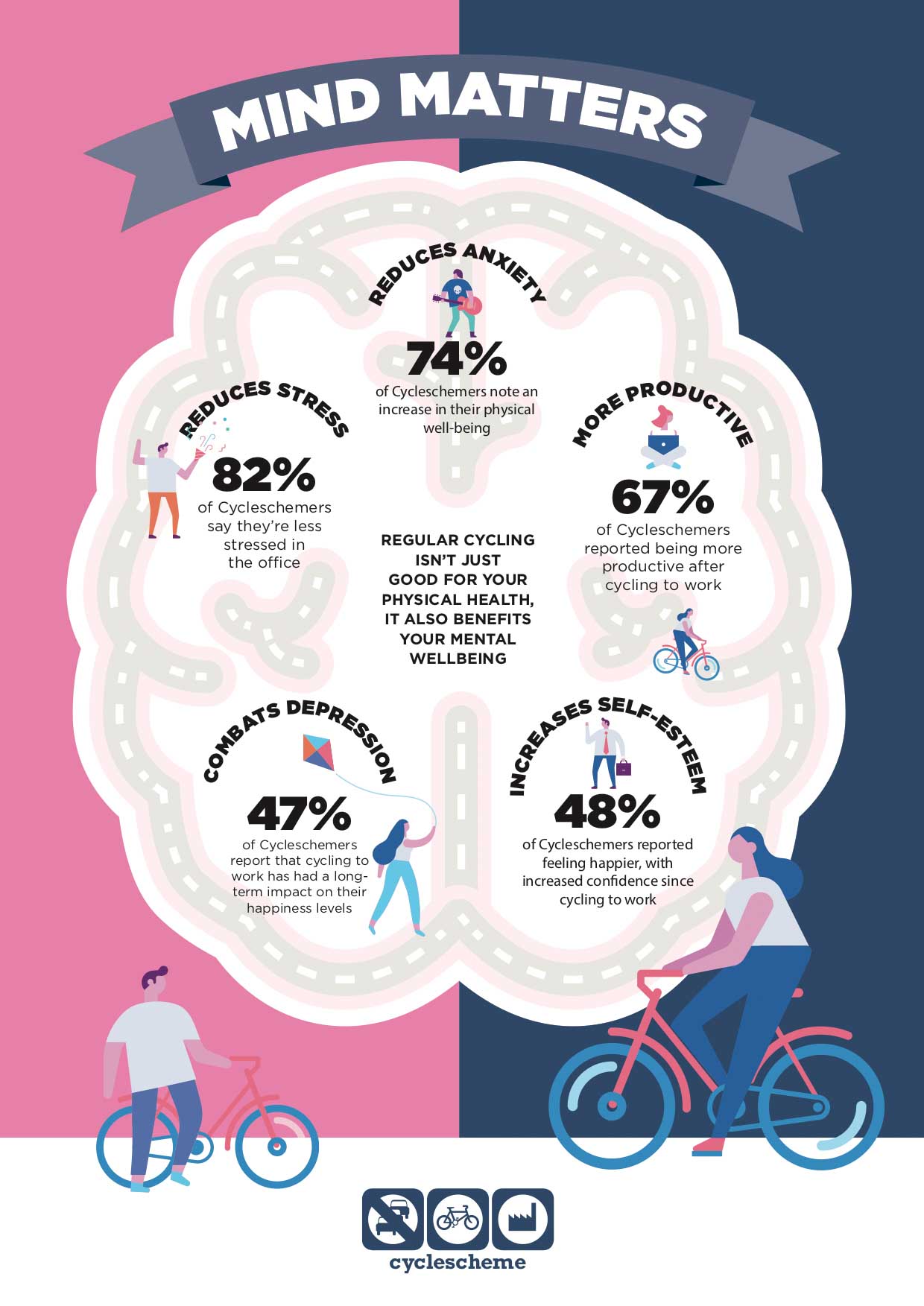In the wake of the coronavirus pandemic, the Government is focused on getting us fitter and healthier. Cycling to work is a key part of that strategy.
Cycling has long been an answer to some of society’s more difficult-to-solve dilemmas. It can help cure people’s health and financial problems while cutting pollution and traffic congestion at the same time. Since the pandemic began it has had an even bigger role to play, so much so that you might expect it to be prescribed. Well, now it is.
On 27 July, the Department for Transport launched ‘Gear Change’, its cycling and walking plan for England (you can expect comparable measures in the devolved nations.) In this plan, Prime Minister Boris Johnson announced “the most radical change to our cities since the arrival of mass motoring… £2billion of new funding for cycling and walking.”
The plan promises better cycling networks, cycle-friendly streets, cycle training for everyone who wants it, incentives for GPs to prescribe cycling, a national e-bike support programme, an improved Highway Code, and more. To help get unused bikes out of sheds and back onto the roads a Fix Your Bike Voucher Scheme was launched, providing £50 off the cost of cycle repair. Demand for the first 50,000 of a promised 500,000 vouchers was huge: the scheme’s website crashed.
The Government’s focus hasn’t been prompted by sudden desire to project a fluffy, environmentally friendly image. There are two bigger concerns. There’s the economic imperative of getting the country moving again without depending on public transport (where social distancing is difficult), or increasing car travel, which would cause gridlock. Plus, there’s the issue that’s on everyone’s mind right now: health.
In the introduction to the DfT plan, Boris Johnson writes: “This unprecedented pandemic has also shown many of us, myself very much included, that we need to think harder about our health. We need to think harder about how we can make lifestyle changes that keep us more active and fit – the way we travel is central to this. This strategy sets out our plans to start prescribing bikes on the NHS – with the bicycle in effect a giant, universal prescription, with our bike lanes becoming huge, 24-hour gyms, free and open to everyone.”
Almost two-thirds (63%) of adults in England are overweight or obese, and half of us put on weight during lockdown. Apart from its impact on health in general, being significantly overweight vastly increases the risk of serious illness or death if you catch Covid-19. Your odds of dying are 40% higher if you’re obese and 90% higher if you’re morbidly obese, according to a study cited by the Government.
Cycling, of course, helps control your weight – in addition to its many other benefits. It also improves your mental health. That’s especially important now: more than half of us have reported stress or anxiety during lockdown.

Cycling has been prescribed in the past to address physical and mental health problems and it’s been very effective. A pilot scheme in West Yorkshire in 2019 saw the percentage of those meeting their NHS physical activity targets rise from 18% before the programme to 73% after it.
Anyone prescribed cycling needs a bike, as does everyone else the pandemic has persuaded to start pedalling. This is where employers come in: if you are registered with Cyclescheme, your staff can save 23-39% on the price of a new bike and equipment, and they’ll be able to spread the cost. In tough economic times, this could be the difference between getting a bike and not – especially now, when the supply of entry-level bikes in shops has struggled to keep up with demand. Many shops have sold out of popular, sub-£1,000 models. With Cyclescheme, your employees can more readily afford one of the better quality, more expensive bikes that are still in stock.
While your employees will appreciate being able to get a bike at a bargain price, there are more immediate reasons than staff loyalty to push cycling at the moment. For employers, as for the Government, bikes are part of the logistical solution to the pandemic. Even in ordinary times, everyone’s a winner when more people cycle to work: staff are happier, wealthier, and healthier; and, from an employer’s standpoint, cycling staff are more punctual, more productive, and take less time off sick.
As long as the pandemic lasts, promoting cycling is vital. It’s easy to meet social distancing requirements by bike, and riding a bike regularly also helps to boost the immune system. If some of your employees would ordinarily commute to work by public transport, staff car parking could be overwhelmed if they switched to cars. So you’ll need at least some of those train, tube, and bus commuters to start cycling instead.
We’ve looked before at what you can do to encourage your staff to cycle. That advice is still applicable now. The difference is that you may find staff more receptive due to the greater awareness of cycling; since the pandemic began, the UK has been experiencing a bike boom. Cyclescheme has lots of resources to help you get your staff on their bikes – just log-in to your MySchemes account.
LOGIN TO YOUR MYSCHMES ACCOUNT
Finally, don’t forget that we are all in this together. One of the best ways to persuade your employees about the benefits of cycling is to lead by example and ride to work yourself.
Comments: